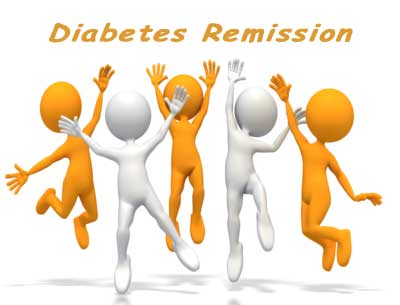23rd March 2018, Dr Chee L Khoo
The DiRECT trial is really a landmark study which shows that remission of type 2 diabetes (T2D) is possible with weight loss and more importantly, it can be achieved in primary care. The result from DiRECT was most impressive when published 12 months ago but the 2 burning questions on everyone’s mind were (1) Is the weight loss sustainable and (2) Is the diabetes remission maintained?” at the end of 24 months. The investigators have released results from “DiRECT Mark II” after a further 12 months of follow up of those participants.
The original DiRECT trial was done under real-life, primary care conditions. 306 individuals with T2D diagnosed in the preceding 6 years were recruited from 46 general practices from Scotland and the Tyneside region of England. Patients in the intervention group were asked to follow 3-5 months of low energy meal replacement diet followed by a stepped food re-introduction. Participants were then asked to increase their physical activity. Details of the trial was described here in Janurary 2018.
Diabetes remission in this study was defined as HbA1c <6.5% after withdrawal of oral anti-diabetic drugs (OAD) from baseline. At 12 months, participants who lost ≥ 15 kg (24%), 86% achieved diabetes remission. Participants who lost 10-15kg, 57% achieved diabetes remission. Participants who lost 5-10kg, 34% went into remission and participants who lost 0-5kg, 7% achieved remission.
For the maintenance phase, from the end of food reintroduction up to 24 months, participants were offered monthly 30 min appointments with the dietitian or practice nurse. If participants regain greater than 2 kg during this phase, they were offered partial meal replacement or total diet replacement +/= orlistat if weight regain was greater than 4 kg. Nothing fancy. Just diet and then increased physical activity plus a rescue plan if needed.
There were 149 participants each in the intervention group and control group. 78% of the intervention group and 94% of the control group participants attended their 24 month follow up. Participants in the intervention group attended on average, 7.7 appointments of their 12 appointments during the second year of follow up. That’s the nature of primary care, isn’t it? Participants who were “lost” to follow up were assumed to have not met the primary outcomes.
As this study was primarily about diabetes remission with weight loss, there were many ways of slicing the data. As you would expect, the more weight one loses, the more likely diabetes remission occurs. At the end of 24 months, participants who lost < 5kg, 5% went into remission, participants who lost 5-10 kg, 29% went into remission, those that lost 10-15 kg, 60% went into remission and those that lost >15 kg, 75% went into remission.
At 12 months, 24% of participants in the intervention group lost > 15kg body eight but by 24 months, only 11% kept that loss off. 13% of participants in the intervention group lost 10-15 kg of body weight. Not unexpectedly, some regain the weight and some of these relapsed back into diabetes.
While it is nice to lose >15 kg of body weight, at 24 months, those that maintained their remission, on average, lost 10.4 kg of body weight. Despite regaining on average, 4.3 kg during the second year, they remained in remission. Those that went into remission at 12 months but relapse at 24 months, on average, lost 3.7 kg. Weight regain in this group was 7.1 kg more than the first group. Those who did not go into remission at 12 or 24 months, on average lost only 3.2 kg. About 50% of participants in the intervention group need rescue relapse management.
A structured primary care-based weight management programme within 6 years of diagnosis can sustain remission to a non-diabetic state, off OAD, for more than a third of people with type 2 diabetes, with sustained remission linked to the extent of sustained weight loss. Weight regain is likely and expected beyond 12 months but diabetes remission is still sustainable despite some weight gain in a significant proportion of patients.
While not all participants in the intervention group attained “sufficient” weight loss, but overall, the HbA1c in the intervention group dropped from 7.7% to 7.1%, systolic blood pressure reduced by 4.3mm Hg, have better quality of life scores and fewer anti-hypertensive drugs. Those who did not go into remission, the number of OAD was reduced.
This study make a strong case that intensive weight management should be included as a first-line option in routine care for people with type 2 diabetes to target early remission from a potentially devastating progressive disease. The ethnic profile of this study population is 98% white. Perhaps, Asians, who tend to develop type 2 diabetes with less weight gain may need less weight loss to undergo remission. Further, it is possible that more participants might have been able to sustain a non-diabetic HbA1c level if their OAD had not been withdrawn.
Professor Michael Lean who is the chief investigator of the DiRECT trial will be here in Macarthur on Saturday 18th May to present the results of his study. Join us in learning from him as we consider implementing similar concepts in general practice in south west Sydney. See here for details.
Access the abstract here
References:
- Lean MEJ, Leslie WS, Barnes AC, et al. Primary care-led weight management for remission of type 2 diabetes (DiRECT): an open-label, cluster-randomised trial. Lancet 2018; 391: 541
- Michael E J Lean, Wilma S Leslie, Alison C Barnes, Naomi Brosnahan, George Thom, Louise McCombie, et al. Durability of a primary care-led weight-management intervention for remission of type 2 diabetes: 2-year results of the DiRECT open-label, cluster-randomised trial. Lancet Diabetes Endocrinol 2019. Published: March 6, 2019. http://dx.doi.org/10.1016/
